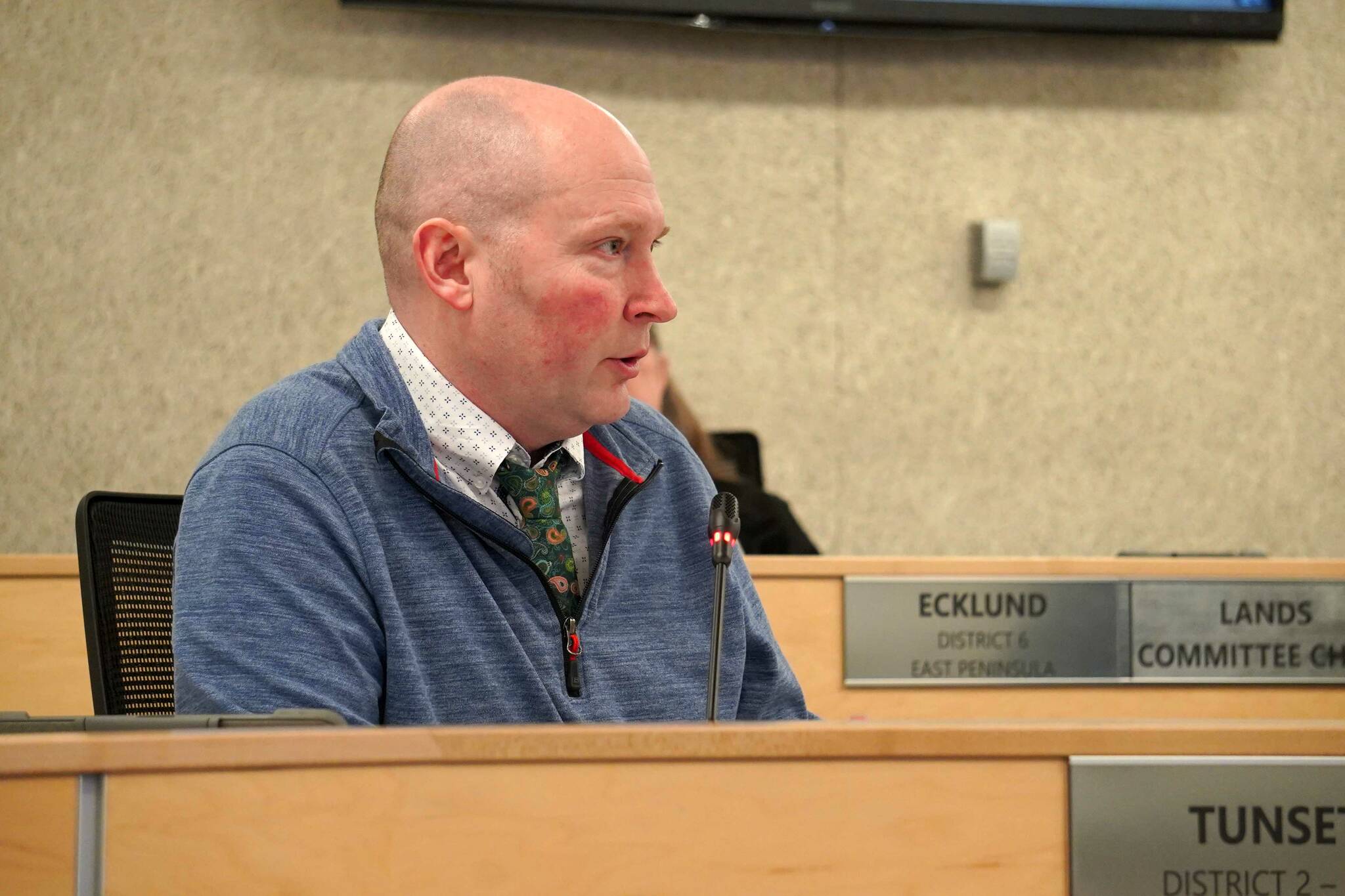The Kenai Peninsula Borough Assembly will consider a resolution during their April 15 meeting in Seward that calls on the Alaska Legislature to create an option in Alaska Statute allowing municipalities to cap increases of real property tax assessment to “no more than 5% from the previous year’s assessment.”
The resolution was posted as a laydown, by Kenai Peninsula Borough Mayor Peter Micciche, to the assembly’s last meeting on April 1. It could have been adopted at that meeting, but instead was postponed to the next meeting amid questions from assembly members.
The text of the resolution says that Alaska Statute requires municipalities like the borough to assess property “at its full and true value.”
“Full and true value is determined by market value prices, therefore, if market value prices go up, assessments necessarily increase,” the resolution reads.
Ryan Tunseth, chair of the assembly’s finance committee, said the resolution asks the Legislature to “allow the flexibility.” The resolution wouldn’t require the borough to use the 5% cap if it were made available by the state government.
Micciche has voiced support for such a cap several times in recent months.
“In the last three years in the borough, we’ve had an increase in valuation of 24%,” he said during the meeting. “That’s extreme and unmanageable for anyone on a budget.”
Duane Bannock was the only person to provide testimony on the resolution, and he urged support. He said the borough doesn’t need the amount of money it’s currently taking in from property taxes and that the recent steep increases in property values can create hardship for “young homeowners” who “are dealing with market forces that they have no control over.”
Assembly member James Baisden echoed Bannock’s testimony, saying he wanted to see action taken by the borough to make homeownership more affordable for young people in the face of “the way the market is trending.”
The resolution was ultimately postponed amid questions from assembly members about how the cap might work. Brent Johnson asked about how the cap would interact with changes over multiple years, or impact someone who owns multiple properties. Tyson Cox asked about commercial property. Willy Dunne said he hadn’t had enough time with the resolution, which he said he’d received as a laydown only the night before, and needed to talk to people and learn more about “nuances.”
Micciche and some members of the assembly said they supported the resolution because it doesn’t bind the assembly to any future action. Tunseth said that he supported the move because it would add “another tool in the toolbox” to deal with recent testimony about sharp increases in property tax rates.
“This asks for the flexibility,” Micciche said. “This doesn’t say that that’s the way we’ll go. Right now, that flexibility doesn’t exist.”
Johnson moved to postpone the resolution.
“You can call it simple if you want,” he said. “But it must not be that simple because I don’t completely understand it.”
Micciche said he supported the postponement, even as the May ending of the current legislative session looms. The Legislature, he said, is already working on the idea. He said the borough would bring more information about how a cap might actually work to the next meeting. “It’s a very important thing to get done, and I would really hate for this assembly to vote no because they’re unsure of how the concept actually operates.”
The assembly will consider the resolution at their next meeting at the Seward Community Library and Museum on April 15. A full recording of the April 1 meeting and a link to participate via Zoom in the April 15 meeting can be found at kpb.legistar.com.

